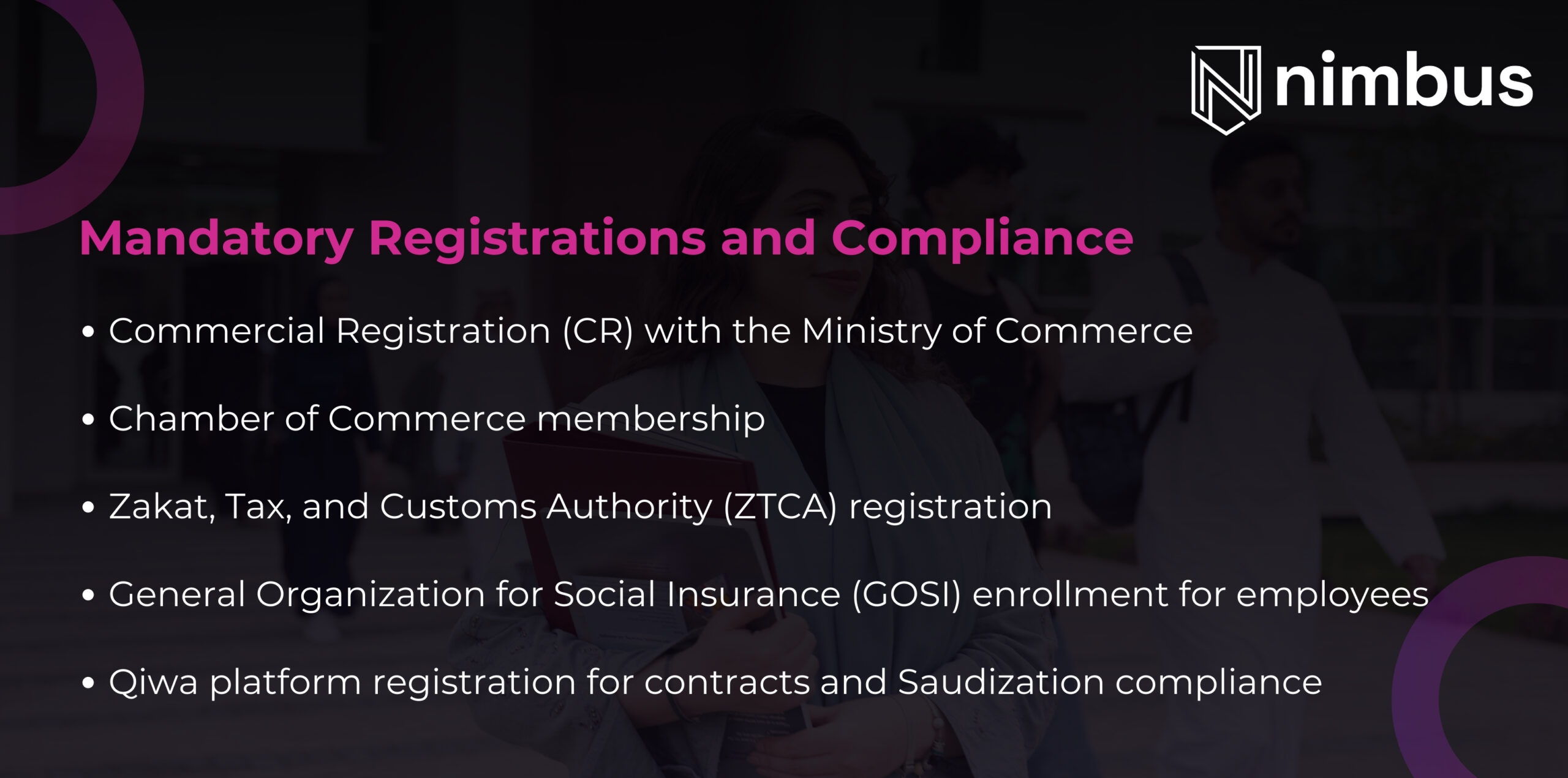Saudi Arabia’s startup ecosystem is growing at an unprecedented pace, making 2025 an exciting time for entrepreneurs and investors looking to tap into the KSA’s dynamic market.
With record venture capital flows, supportive government policies, and a young, digitally savvy population, Saudi Arabia is fast becoming one of the most attractive destinations for new businesses in the Middle East.
For startups, understanding the legal, regulatory, and operational landscape is critical to building a sustainable venture.
Launching a Startup in Saudi Arabia – Things to Know in 2025

1. Understanding the Startup Ecosystem
Saudi Arabia’s startup ecosystem has expanded dramatically over the past five years. Venture capital investment has grown by nearly 49 percent annually since 2020.
In 2024 alone, startups raised a record US$750 million across 178 deals, the highest number in the Middle East and North Africa. During the first quarter of 2025, nearly US$400 million was invested in early- and growth-stage startups, while more than 1,600 active startups now operate across the country.
Riyadh has emerged as the third most prominent startup hub in the MENA region, and global rankings recently named Saudi Arabia the fastest-growing startup ecosystem worldwide.
Key growth sectors include fintech, e-commerce, healthtech, AI, and green technologies. These developments make the KSA an appealing destination for both local and foreign entrepreneurs exploring business setup in Saudi Arabia
2. Choosing the Right Legal Structure
The legal structure of a startup is a critical early decision, as it determines liability, governance, and fundraising potential. Choosing the appropriate structure early can influence future fundraising, exit strategies, and regulatory compliance. Some popular options include the following.
- Limited Liability Company (LLC): The most common choice for early-stage startups. It provides protection for founders’ personal assets, a straightforward incorporation process, and flexible governance. LLCs are ideal for companies testing market demand or seeking initial investment.
- Simplified Joint Stock Company (SJSC): Suitable for startups anticipating rapid growth and external funding. SJSCs allow different share classes and flexible ownership structures, making them attractive for venture capital investors.
- Joint Stock Company (JSC): Designed for larger businesses planning to list on the Saudi Exchange (Tadawul). This structure requires strict governance and disclosure but enables access to public capital markets.
3. Mandatory Registrations and Compliance
Before operating, startups must complete several registrations to comply with Saudi regulations.

- Commercial Registration (CR) with the Ministry of Commerce
- Chamber of Commerce membership
- Zakat, Tax, and Customs Authority (ZTCA) registration
- General Organization for Social Insurance (GOSI) enrollment for employees
- Qiwa platform registration for contracts and Saudization compliance
While digital platforms have simplified registration, discrepancies in activity codes or shareholder information can cause delays in opening bank accounts, hiring staff, or issuing invoices.
Sector-specific licensing is another crucial step. Food-tech startups, for example, require Saudi Food and Drug Authority (SFDA) approval, while travel and media companies need permits from the Ministry of Tourism or Ministry of Media.
4. Intellectual Property: Protecting Your Innovations
Intellectual property (IP) is a core asset for Saudi startups. Early registration not only safeguards innovations but also signals credibility to investors and partners. The Saudi Authority for Intellectual Property (SAIP) manages trademarks, patents, and copyright registrations, including creative works.
Startups should also incorporate IP ownership clauses into employment and contractor agreements. Without this, ownership of proprietary technology or creative assets may remain with individuals, potentially jeopardizing funding or legal security.
5. Employment, Saudization, and HR Compliance
Human resources compliance is essential for both operational stability and regulatory adherence.
- All employment contracts must be registered through the Qiwa platform
- Employees must be enrolled with GOSI for social insurance coverage
- Wage Protection System compliance ensures salaries are paid via approved channels
Saudization, or Nitaqat, requires companies to hire a minimum percentage of Saudi nationals, varying by sector and business size. Non-compliance can result in visa restrictions, service suspensions, or fines. Early workforce planning is crucial to ensure smooth business operations.
6. Taxation and Financial Governance
Saudi Arabia differentiates between foreign and local ownership in its taxation framework.
- Zakat applies to Saudi and GCC-owned entities
- Corporate income tax applies to foreign-owned companies
- Value-added tax (VAT) at 15 percent is mandatory once annual revenue exceeds SAR 375,000
Financial governance extends beyond compliance. Startups must maintain accurate accounting records, implement e-invoicing, and prepare for audits. Good financial governance builds credibility with investors and partners, facilitating fundraising.
7. Leveraging Business Setup Services
Foreign entrepreneurs benefit from engaging professional business setup services when establishing a company in the KSA. These services simplify licensing, registration, and regulatory compliance while providing local expertise. Business setup services can assist with:
- KSA company formation, including LLCs or SJSCs
- Regulatory approvals and sector-specific licensing
- Employee registration and Saudization compliance
- Banking, tax, and financial governance support
Partnering with experienced providers like Nimbus Consultancy reduces administrative burdens and allows startups to focus on market entry strategies.
Building for Long-Term Success

Saudi Arabia’s startup ecosystem offers immense potential, fueled by venture capital, government support, and an ambitious Vision 2030 agenda. However, sustainable growth requires careful attention to legal structures, IP protection, employment compliance, and financial governance.
Startups that view compliance as a strategic tool rather than a constraint are better positioned to attract investors, scale operations, and navigate the complexities of international business.
Early decisions regarding company structure, licensing, and workforce planning can determine whether a startup becomes investment-ready and resilient in a competitive market.
By leveraging professional KSA company formation support and integrating compliance into the growth strategy, startups can capitalize on the Kingdom’s expanding market and set the foundation for long-term business success.


